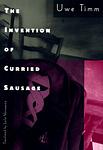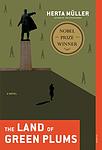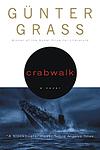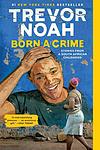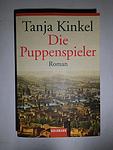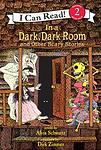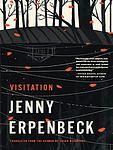The Greatest German, Irish "Historical fiction, Fiction" Books Since 1990
Click to learn how this list is calculated.
This list represents a comprehensive and trusted collection of the greatest books. Developed through a specialized algorithm, it brings together 300 'best of' book lists to form a definitive guide to the world's most acclaimed books. For those interested in how these books are chosen, additional details can be found on the rankings page.
Genres
Historical fiction is a genre of literature that combines fictional stories with real historical events, settings, and characters. These books often take place in a specific time period and are based on research and factual information, but also include imaginative elements to create a compelling narrative. Historical fiction allows readers to experience the past in a unique and engaging way, while also providing insight into the social, cultural, and political issues of the time.
Countries
Date Range
Reading Statistics
Click the button below to see how many of these books you've read!
Download
If you're interested in downloading this list as a CSV file for use in a spreadsheet application, you can easily do so by clicking the button below. Please note that to ensure a manageable file size and faster download, the CSV will include details for only the first 500 books.
Download-
1. The Book Thief by Markus Zusak
Set in Nazi Germany during World War II, the novel follows the story of a young girl who finds solace in stealing books and sharing them with others. In the midst of the horrors of war, she forms a bond with a Jewish man her foster parents are hiding in their basement. The story is narrated by Death, offering a unique perspective on the atrocities and small acts of kindness during this period. The girl's love for books becomes a metaphor for resistance against the oppressive regime.
-
2. The Reader by Bernhard Schlink
"The Reader" is a poignant narrative centered around a young German boy's complex relationship with an older woman, who later turns out to be a former Auschwitz guard. Their relationship begins with her teaching him to read, but takes a drastic turn when she disappears, only to reemerge on trial for war crimes. The novel explores themes of guilt, shame, and redemption, as the boy, now a law student, grapples with his feelings for a woman he once loved, but whose past actions he cannot reconcile with.
-
3. Amongst Women by John McGahern
"Amongst Women" is a novel that tells the story of Michael Moran, a bitter, aging Irish Republican Army (IRA) veteran, and his relationships with his wife and five children. The narrative explores themes of family, power, love, and the struggle between freedom and control. Moran's domineering personality and the effects of his past experiences in the IRA have a profound impact on his family, shaping their lives and relationships in complex and often destructive ways.
-
4. Brooklyn by Colm Tóibín
The novel tells the story of a young Irish woman, Eilis Lacey, in the 1950s who, unable to find work at home, is sent to Brooklyn by a helpful priest where she builds a new life. She finds work, studies to become a bookkeeper, and falls in love with an Italian plumber named Tony. However, a family tragedy forces her to return to Ireland, where she must choose between her new life in America and her old life at home.
-
5. Vertigo by W. G. Sebald
"Vertigo" is a complex narrative that combines elements of fiction, travelogue, biography, and autobiography. The novel is divided into four sections, each exploring the life and works of different historical figures such as Stendhal, Kafka, and Casanova, as well as the author's own experiences. The narrative is characterized by its exploration of themes such as memory, identity, and the past, often blurring the lines between fact and fiction. The book is also notable for its distinctive style, featuring long, meandering sentences and a lack of traditional plot structure.
-
6. The Invention of Curried Sausage by Uwe Timm
The book is a fictional account of the creation of the popular German fast food, curried sausage. The story unfolds through the narration of a young journalist who visits an elderly woman, believed to be the inventor of the dish during World War II. It explores the woman's tumultuous love affair with a young sailor during the chaotic final days of the war, her struggle for survival, and the circumstances that led to the creation of the spicy sausage. The novel is a blend of romance, war-time survival, and culinary innovation.
-
7. Days Without End by Sebastian Barry
"Days Without End" is a historical fiction novel that follows the life of an Irish immigrant who enlists in the U.S. Army in the 1850s. The protagonist's experiences include fighting in the Indian Wars and the Civil War, as well as falling in love with a fellow soldier. The novel explores themes of identity, love, and survival in a brutal and unforgiving era of American history.
-
8. The Land Of Green Plums by Herta Müller
The novel is a poignant exploration of life under a repressive regime, following a group of young friends in Romania during the totalitarian rule of Nicolae Ceaușescu. Through the eyes of the narrator, a young woman with aspirations of freedom and self-expression, the story delves into the oppressive atmosphere of surveillance, fear, and betrayal that permeates their existence. As they struggle to maintain their integrity and hope amidst the dehumanizing forces of the state, the friends are inexorably drawn towards tragic outcomes, illustrating the devastating impact of living under constant oppression and the indomitable spirit that resists it.
-
9. The House Of Splendid Isolation by Edna O'Brien
The book tells the story of an old woman living in isolation in a grand but dilapidated house in rural Ireland. Her quiet life is disrupted when a fugitive on the run from the law invades her home. As she's forced to coexist with him, she begins to reflect on her own past and the history of the Irish people, leading to a complex exploration of themes such as loneliness, regret, and the struggle for national identity.
-
10. The Boy in the Striped Pyjamas by John Boyne
This novel follows the story of a young boy who moves from Berlin to a house near a concentration camp during World War II. Unaware of the grim reality of his surroundings, he befriends another boy on the other side of the camp fence. The two develop a deep friendship despite the horrific circumstances, leading to a devastating and unforgettable ending.
-
11. Measuring the World by Daniel Kehlmann
"Measuring the World" is a historical novel that reimagines the lives of two brilliant and driven men, German mathematician Carl Friedrich Gauss and German geographer Alexander von Humboldt. The narrative alternates between the two protagonists, exploring their individual quests to quantify and understand the world. Gauss, a child prodigy from a poor family, rises to become one of the greatest mathematicians in history, while Humboldt, a wealthy and ambitious explorer, embarks on a five-year journey across South America. Their paths converge in a humorous and touching manner, highlighting the contrast between their approaches to knowledge and discovery.
-
12. The Blind Side of the Heart by Julia Franck
"The Blind Side of the Heart" is a historical novel that explores the life of a German woman before, during, and after World War II. The story begins with her abandonment of her young son at a railway station, then flashes back to her own childhood, her experiences during the war, and her tumultuous relationships. The narrative provides a deep and unflinching look at the psychological effects of war and the struggle for survival, as well as the profound impact of trauma and loss.
-
13. Crabwalk by Günter Grass
This novel delves into the tragic sinking of the Wilhelm Gustloff, a German ship, during World War II, through the eyes of a journalist investigating the event's historical and personal ramifications. The narrative weaves together past and present, exploring the intergenerational impact of the catastrophe on survivors and their descendants. The author employs a unique storytelling technique, the "crabwalk," moving backward and forward in time to reveal the complexities of guilt, memory, and the reinterpretation of history. Through its intricate plot and deep character exploration, the book addresses the themes of nationalism, the repercussions of war, and the struggle to come to terms with one's heritage.
-
14. The South by Colm Tóibín
"The South" by Colm Toibin is a compelling novel that follows the journey of a young Irish woman named Katherine as she leaves her troubled marriage behind and embarks on a new life in Spain. Set against the backdrop of political unrest and cultural differences, Katherine's experiences in the vibrant and mysterious south of Spain shape her identity and challenge her perceptions of love, art, and self-discovery. With rich prose and nuanced characters, Toibin explores themes of longing, transformation, and the complexities of human relationships in this captivating tale.
-
15. Die Puppenspieler by Tanja Kinkel
Set against the backdrop of the late Middle Ages, the novel weaves a tale of intrigue, power, and betrayal, following the lives of two families of puppeteers who become embroiled in the political machinations of their time. As they travel through the tumultuous landscapes of Europe, they encounter historical figures and events, from the fall of the Knights Templar to the turmoil of the Papal States. The families must navigate the treacherous waters of courtly life, where the art of puppetry becomes a metaphor for the control and manipulation exercised by the ruling classes. Their journey is not only a physical one but also a quest for artistic freedom and personal integrity in an era rife with corruption and upheaval.
-
16. Reading In The Dark by Seamus Deane
"Reading In The Dark" is a captivating novel that delves into the complex history of Northern Ireland through the eyes of an unnamed protagonist. Set against the backdrop of political turmoil and sectarian violence, the story follows the protagonist's journey of self-discovery as he unravels family secrets and confronts the ghosts of the past. Seamlessly blending personal and political narratives, the book explores themes of memory, identity, and the power of storytelling, ultimately offering a poignant reflection on the lasting impact of history on individuals and communities.
-
17. A Long Long Way by Sebastian Barry
This novel vividly captures the harrowing experiences of a young Irish soldier caught in the brutal trenches of World War I. As he navigates the horrors of war, he also grapples with the complex political tensions of his homeland, torn between loyalty to the British forces and the rising call for Irish independence. Through his journey, the protagonist confronts the brutal realities of conflict, the bonds of camaraderie, and the personal quest for identity amidst the chaos of war and the shifting landscapes of early 20th-century Ireland. The narrative combines historical detail with profound emotional depth, exploring themes of loyalty, identity, and the devastating impact of war on the human spirit.
-
18. This Side Of Brightness by Colum McCann
The novel delves into the lives of tunnel diggers beneath New York City at the turn of the 20th century, juxtaposing their stories with those of their descendants in the 1990s. It explores themes of racial tension, poverty, and the enduring human spirit through the interwoven narratives of a black sandhog who survives a harrowing tunnel collapse and his grandson, grappling with a life on the fringes of society. As the tale unfolds, it reveals the deep connections between past and present, and the invisible threads that bind the city's history to the fates of its inhabitants.
-
19. Reading Turgenev by William Trevor
The novella presents the poignant tale of a young Irish woman trapped in a stifling marriage, who finds solace and escape in her imagination and the literature of Russian novelist Ivan Turgenev. Her life, constrained by the expectations of her small rural community and a loveless union with an older man, contrasts sharply with the passionate world she encounters in the novels she cherishes. As she retreats further into her fantasies and the comfort of her secret attic space, the lines between reality and fiction blur, offering both a refuge and a haunting reminder of the life she yearns for but cannot openly pursue.
-
20. Two Lives by William Trevor
"Two Lives" consists of two novellas that delve into the themes of love, loneliness, and personal pasts. The first story, "Reading Turgenev," follows Mary Louise Dallon, a young Irish woman trapped in a loveless marriage, who finds solace in the imaginary world inspired by Russian literature. The second, "My House in Umbria," tells the tale of Mrs. Delahunty, a romance novelist who, after surviving a terrorist attack, opens her Italian villa to her fellow survivors, creating an unconventional makeshift family. Both stories explore the characters' attempts to escape their mundane realities through the power of imagination and storytelling.
-
21. Visitation by Jenny Erpenbeck
"Visitation" is a novel that explores the history of a house located by a lake in Brandenburg, Germany, and the various inhabitants it has seen over the centuries. The narrative spans from the early 20th century to the post-war period, encompassing the tumultuous events of the Weimar Republic, the Third Reich, and the German Democratic Republic. Each chapter is dedicated to a different resident's story, including a Jewish family, an architect, a young girl, and a Soviet officer, among others, creating a tapestry of human experiences and emotions shaped by the historical and political upheavals of the time.
-
22. A Star Called Henry by Roddy Doyle
The novel follows the life of Henry Smart, a boy born into the slums of early 20th-century Dublin, who becomes a soldier and fighter for the Irish independence movement. With a wooden leg from his deceased father as his talisman, Henry navigates through the violent and tumultuous era of Irish history, experiencing both the personal and political struggles of the time. His journey is marked by loss, love, and the relentless quest for identity and purpose amidst the chaos of war and the shaping of a nation's future.
-
23. Fortune's Wheel by Rebecca Gablé
"Fortune's Wheel" is a historical novel that transports readers to the tumultuous period of the Hundred Years' War and the Black Death in Europe. The story revolves around a young English craftsman who rises from the ashes of personal tragedy. As he navigates the complex social hierarchies and political turmoil of the 14th century, he finds himself caught between loyalty and ambition, love and duty. The protagonist's journey is one of resilience and transformation, set against the backdrop of a world where the whims of fate can uplift or destroy the fortunes of men. Through vivid storytelling, the novel explores themes of power, destiny, and the enduring human spirit.
-
24. Nora Webster by Colm Tóibín
Set in a small town in Ireland in the late 1960s, the novel follows Nora Webster, a recently widowed mother of four struggling to forge a new life after the death of her beloved husband. As she navigates her grief and the complexities of raising her children alone, Nora gradually begins to rediscover her own identity beyond her roles as a wife and mother. Through her journey, she confronts societal expectations and personal setbacks, ultimately finding a renewed sense of self and independence. The narrative captures the subtle transformations of Nora's character and the intimate details of her everyday life with profound emotional depth and insight.
-
25. The Secret Scripture by Sebastian Barry
"The Secret Scripture" is a deeply moving tale of Roseanne McNulty, a centenarian who has spent most of her life in a mental institution in Ireland. As the institution is about to be demolished, her psychiatrist Dr. Grene must determine whether she's fit to be released. As he delves into her past, Roseanne reveals her life story through a secret memoir she's been writing. The narrative alternates between Roseanne's recollections and Dr. Grene's observations, revealing a tragic and complex history of Ireland's social and political changes, while also exploring themes of memory, identity, and sanity.
Reading Statistics
Click the button below to see how many of these books you've read!
Download
If you're interested in downloading this list as a CSV file for use in a spreadsheet application, you can easily do so by clicking the button below. Please note that to ensure a manageable file size and faster download, the CSV will include details for only the first 500 books.
Download




